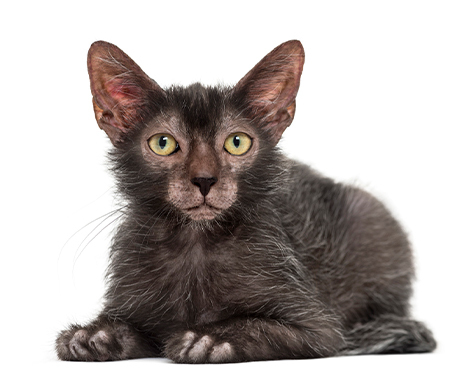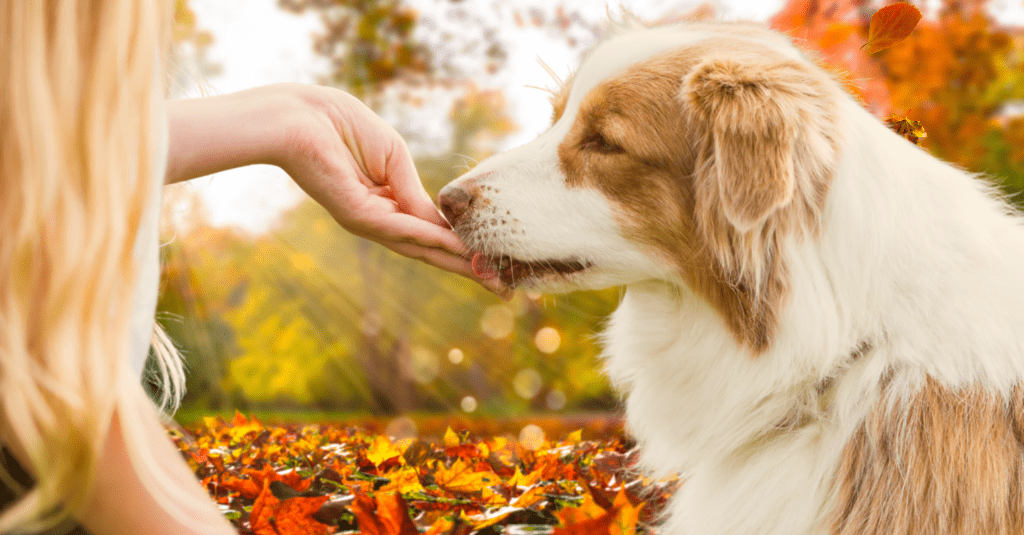






Lykoi
 Overview
Overview
Overview of Lykoi "Wolf" Cat
Roughly translating as wolf cat in Greek, the Lykoi looks more like a creature that fell out of a Tim Burton or Harry Potter movie than a domestic cat. They are missing a specific gene responsible for hair growth - while they do have hair, it is sparse, and often missing entirely around the face and paws giving them their signature mangy look. The coat can vary from almost entirely black to almost entirely white because of the ratio of black to white hairs; the pattern is called roan in other animals, but the Lykoi is the only purebred cat breed with this coat pattern. Kittens are all born completely black, but within 2-4 weeks, the color pattern will develop, along with hairlessness. Despite their prickly appearance, the Lykoi 'Wolf' cat's fur is very soft to the touch and they don't mind being pet in all directions due to their lack of an undercoat! After two kittens were rescued from a shelter that had the signature Lykoi coat, it was discovered that they were unlike any other kitties out there so a breeding program emerged. To expand the gene pool, wild cats with the same genetic mutation were introduced as well as black shorthair cats (to create the iconic black ‘wolf’ coat). The Lykoi is so new that people are still working out the breed standards (the breed was only recognized by TICA in 2018 even though they have been around since 2010), and it is unclear what diseases these semi-hairless felines are prone to - it takes many generations for this information to come to light.
Common Health Conditions & Recommendations for Lykoi
Skin Issues:
Due to their lack of hair, Lykoi “Wolf” Cats may experience similar issues to other hairless cats like rashes, burns and fungal infections.
Recommendations for Skin Issues in Lykoi Cats:
Common Health Conditions & Recommendations for Lykoi
Osteoarthritis:
Lykoi ‘Wolf’ are often born with very short limbs aka achondroplastic dwarfism which means that musco-skeletal issues like osteoarthritis often develop as they age so as a pet parent, it is a good idea to add supplements to prevent and manage symptoms.
Recommendations for Osteoarthritis in Lykoi Cats:
Common Health Conditions & Recommendations for Lykoi
GI Tract Issues:
Lykoi ‘Wolf’ cats tend to have sensitive tummies and need access to fresh food at all times (to compensate for their lack of hair, they have faster metabolisms) so sometimes they can have issues with digestion, absorption or bowel health.
Recommendations for GI Tract Issues in Lykoi Cats:
 Personality
Personality

Often described as having the appearance of a werewolf, the personality of a dog, and the physique of a cat, The Lykoi ‘Wolf’ cat is unmistakable. These wolfy kitties maintain a lot of their wild ancestry, so they really enjoy stalking their toys, other pets (beware of smaller animals!), and people. When there is more than one Lykoi, they love playing together. They sometimes appear to have dog-like qualities because they can fetch and tend to follow their owners around. Lykoi 'Wolf' cats are often cautious when presented with a new situation, preferring to size it up before jumping in, but will quickly warm up to new people and pets. Like other hairless-type cats, if you’re thinking of adopting one of these kitties, pay special attention to their sensitive skin because they can get sunburnt and oily pores. To compensate for their lack of hair, like the Sphynx, Lykoi ‘Wolf’ cats have a higher metabolism and burn hotter than most cats so they need access to fresh food at all times. This cat is for anyone who wants a medium-sized (6-12 lb) pet with wolfy looks and a big personality!



 USD
USD
 Canadian Dollars
Canadian Dollars
